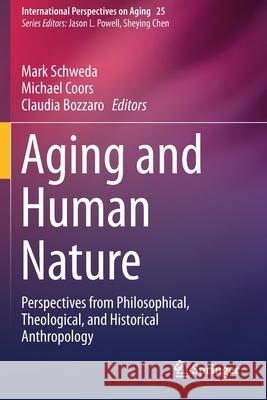Aging and Human Nature: Perspectives from Philosophical, Theological, and Historical Anthropology » książka
topmenu
Aging and Human Nature: Perspectives from Philosophical, Theological, and Historical Anthropology
ISBN-13: 9783030250997 / Angielski / Miękka / 2021 / 287 str.
Aging and Human Nature: Perspectives from Philosophical, Theological, and Historical Anthropology
ISBN-13: 9783030250997 / Angielski / Miękka / 2021 / 287 str.
cena 524,53
(netto: 499,55 VAT: 5%)
Najniższa cena z 30 dni: 501,19
(netto: 499,55 VAT: 5%)
Najniższa cena z 30 dni: 501,19
Termin realizacji zamówienia:
ok. 16-18 dni roboczych.
ok. 16-18 dni roboczych.
Darmowa dostawa!
Kategorie:
Kategorie BISAC:
Wydawca:
Springer
Seria wydawnicza:
Język:
Angielski
ISBN-13:
9783030250997
Rok wydania:
2021
Wydanie:
2020
Numer serii:
000421158
Ilość stron:
287
Waga:
0.41 kg
Wymiary:
23.39 x 15.6 x 1.57
Oprawa:
Miękka
Wolumenów:
01
Dodatkowe informacje:
Wydanie ilustrowane











